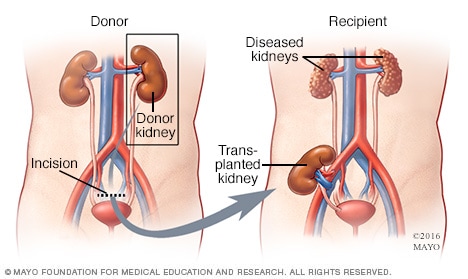
How trying to donate my kidney led to saving my life from undiagnosed stage 3 lung cancer.
In 2018 my dad’s kidneys suddenly stopped working. The first sign was when he lost balance during a walk. He went on dialysis, which is where you sit in a chair and they pump all your blood through an external filter for 5 hours, 3 times a week.
This went on for a few months. I didn’t really understand how horrific the situation was until my dad called me in tears. He had just watched someone die in front of him at the dialysis center, which happens all the time.
I offered to give my dad my kidney. I said it almost as a reflex; I just knew I had to help my dad.

Like most people I didn’t know much about kidney donation. Turns out it’s extremely safe, having minimal impact on donor life expectancy of -0.5 to -1 year. There’s less than 1-5% chance of kidney failure having only a single healthy kidney.
For the recipient a live kidney donation can mean 12 to 20+ years of life, vs. average 5 years life expectancy for those on dialysis.
Transplant centers are rated based on successful long-term outcomes of both the recipient and the donor. So the top centers only accept good candidate pairs and there is an exhaustive screening process.
Recipients will take immunosuppressant drugs for the rest of their lives. So the testing, beyond the simple blood-type match, is less to determine if someone is a good match than if a kidney is safe to take.
Lots of blood tests, a full CT scan, a kidney and bladder ultrasound, and a psychological assessment. You receive almost every available diagnostic, and they look for any other complications that might effect a positive outcome. All for free! The recipient’s insurance pays for all of the tests and the donation surgery.
Donation centers aren’t allowed to divulge the reason someone isn’t a match, so you can always change your mind about donating. The donor/recipient teams are shielded from each other to ensure secrecy.
I went through all the testing, and my blood and psych evals looked great. There was just one little problem…
As a final step, the transplant doctors pulled me into a room to review my full body CT scan. They pointed at a weird blob on my chest on the screen and asked “What’s that?”. I had no idea!
I flew back to SF to have it biopsied. It turned out to be an extremely rare form of slow-growing lung cancer - a carcinoid tumor. Carcinoids are only 27 new cases per million diagnosed in the U.S. per year, and those are usually in the GI tract.
It had been growing for some years, until it had reached the size of a small egg. Right there in the middle of my right lung! Because it was slow growing I didn’t have any symptoms other than feeling generally out of shape.
Luckily it hadn’t started to spread, though it was dangerously close to the airway split for the top lobe of the right lung, so I had to act fast.
I talked to UCSF and Stanford, both top cancer research hospitals, and the concensus was a lobectomy: removing the lower and middle lobes, about 1/3 of total lung volume.
Both docs planned to crack open my ribs and sever my right lung by hand. For some reason both the surgeons tried reassuring me that they had small hands 🤣.
My GP Dr. Dolhun at the time had interned at Mayo Clinic and made some calls to find the hot shot thoracic surgeon Dr. Shandra Blackmon.
I flew to Rochester for her assessment. In the scariest reveal of my life, she let me know she would be able remove the lung arthroscopically. My scars ended up only a few inches long!
Fun fact: carcinoid tumors produce serotonin and under stress can dump fatal amounts into the blood stream, called carcinoid crisis. This happened to me, and my heart needed to be restarted via the electrodes pre-inserted through my carotid artery just in case. Go Mayo!
Unfortunately, cancer survivors can’t donate a kidney until 5 years of remission.
Fortunately, in the end my dad was able to get a kidney from my stepmom - as mentioned pretty much any healthy kidney will work. Both recipient and donor are healthy today, and best of all no more dialysis!
Needless to say, finding out you have advanced cancer while trying to donate a kidney is a pretty rare experience. It likely saved my life. This probably won’t happen for you. But you never know!
So, always try to donate a kidney. Even if you don’t go through with it, you might learn something important about yourself ✨.